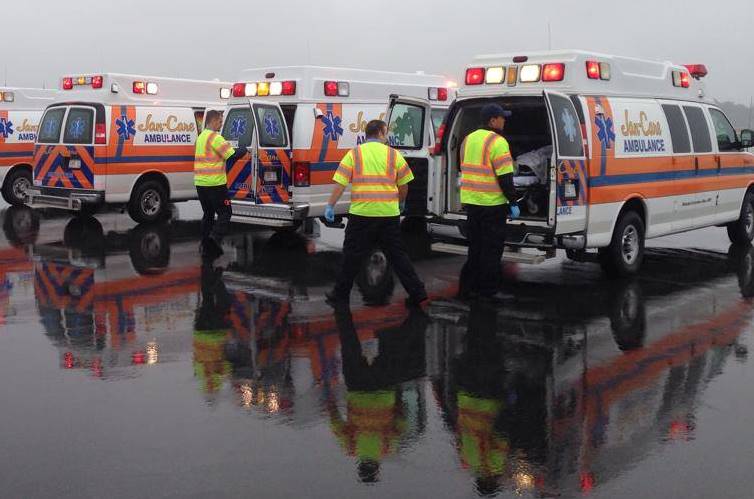Several new state laws are meant to help the state’s understaffed Emergency Medical Services. But maintaining statewide EMS operations remains a challenge.
Before Senate Bill 533 became law, many EMS runs were like Ubers, only getting paid to transport. Now, ambulance units will be reimbursed for care provided at the scene, even if they don’t transport the patient.
Executive Director of the West Virginia EMS Coalition Chris Hall said the legislation speaks to the cause of readiness.
“There’s an acute cost,” Hall said. “Particularly in our rural areas where you may have less than one call a day to keep an ambulance available 24/7. When that call comes out, you respond to the scene and then you don’t get paid, it really makes it difficult to maintain the service. This bill only applies to private insurance. It won’t impact Medicare, Medicaid, PEIA, but it’s a start.”
Hall said other new laws benefiting the industry include Senate Bill 445, that streamlines redundant EMT certification requirements.
“Some folks had to renew three out of four years,” Hall said. “Hopefully this will make it easier for everyone to get recertified and hopefully keep more certified people on the rolls in West Virginia.”
Hall said Senate Bill 602 will create cardiac emergency response plans for public schools, putting first responders in a proactive role.
“The schools will coordinate with EMS on those plans, so that we’re involved from the start,” Hall said. “Cardiac emergencies are increasingly common, particularly in football and sports like that. This just ensures that the local EMS systems are involved in a planned response to those emergencies and hopefully, save lives, particularly for our young students.”
But Hall says state funding was not approved to help maintain EMS operations and address a shortage of ambulances and equipment.
“Every state around us has some funds that go to EMS agencies for equipment, training, things like that, to help keep the doors open,” Hall said. We still don’t have that. As you’re looking across the state, I think you’re seeing more and more reports where ambulances aren’t always available to respond to an emergency.”
Another new law, House Bill 5347, provides a state funded program for EMS personnel to become certified paramedics.
